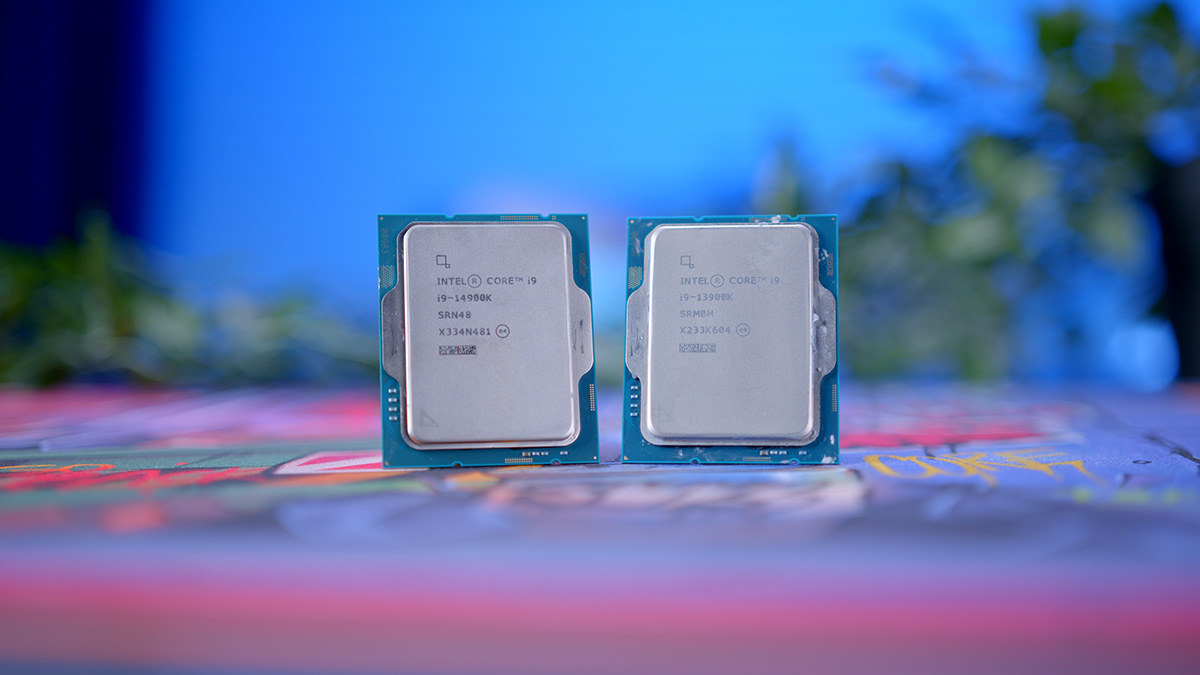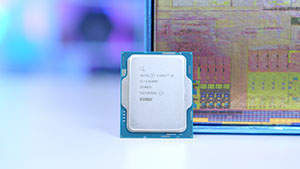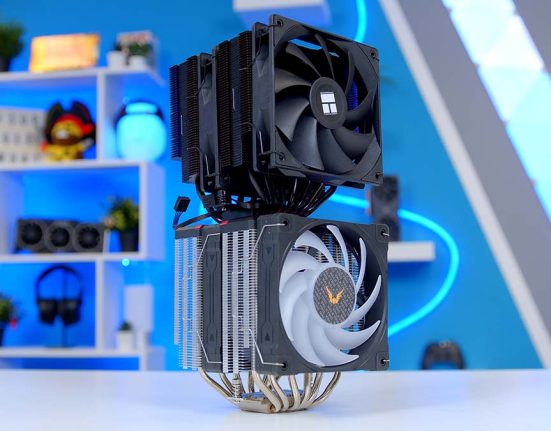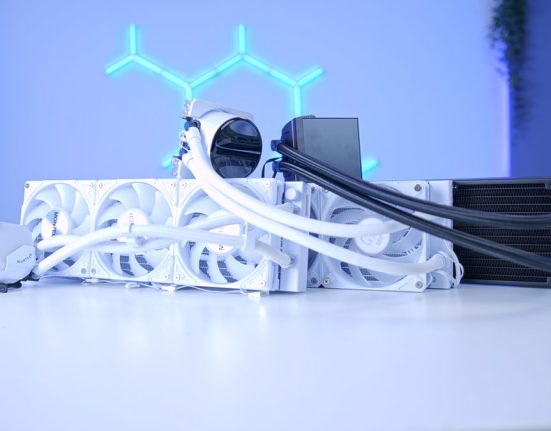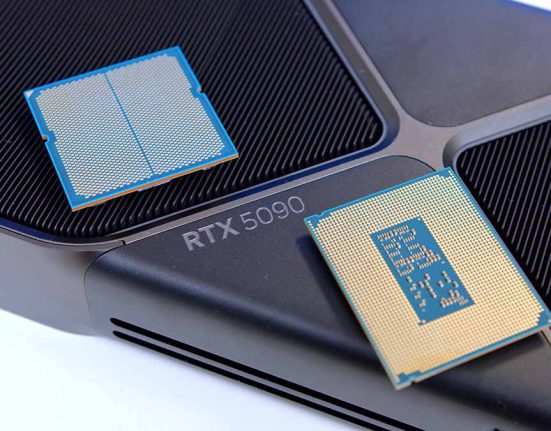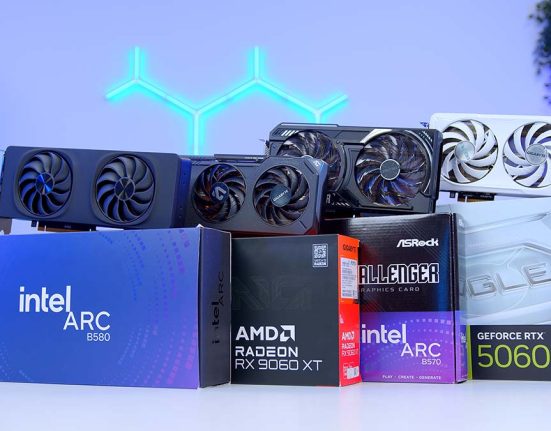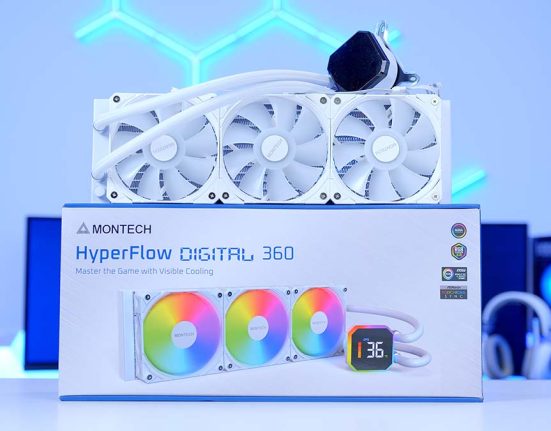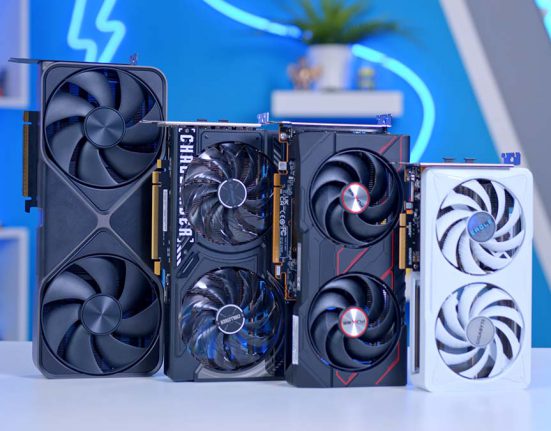During the release of their 14th generation of processors, Intel have stated that these CPUs are refreshed versions of the 13th-Gen products, instead of a full generational leap. This has left many PC enthusiasts perplexed, as this suggests that the Raptor Lake Refresh lineup don’t warrant the 14th-Gen title.
With that in mind, we wanted to test how much has changed from the previous generation, as this will help determine whether an upgrade to 14th-Gen is worth considering. In this case, we’ve pitted the flagship Core i9 14900K against its predecessor, the Core i9 13900K, to see which of Intel’s high-end CPUs is the better deal for consumers.
Intel Core i9 14900K

As the most powerful processor in Intel’s 14th generation, hopes were high for this CPU to offer a significant boost to performance while maintaining a price point that would allow it to compete with AMD’s Ryzen 7000 series offerings. Unfortunately, it seems as though the i9 14900K has failed to deliver the improvements expected from a new generation processor. That being said, this CPU does provide some benefits over its predecessor.
The main enhancement found on the i9 14900K is the improved clock speeds, which results in a moderate boost to gaming performance. Jumping up to a boost clock speed of 6GHz, thanks to Intel’s Thermal Velocity Boost technology. However, this does come with the caveat of having to keep temperatures below 70 degrees, which means you’ll have to pick up a very strong CPU cooler to support the i9 14900K.
Featuring 24 cores and 32 threads, the i9 14900K should have no issues when running a range of demanding tasks. Whether you want to play the latest blockbuster games at 4K high settings, or want to edit videos for a passion project, this processor will have you covered. Our testing indicated that the i9 14900K is one of the most powerful CPUs available, topping the charts in a range of single and multi-threaded parameters.



On the broader scale, the i9 14900K is a powerhouse that is ideal for any high-end system filled with the latest components. However, when compared to its previous-gen alternative, the performance on offer starts to become significantly less impressive. With the clock speeds, core counts, and thread counts being almost identical to its predecessor, it’s hard to find enough improvements to justify an upgrade.
Buy the Intel Core i9 14900K on:
Intel Core i9 13900K

Since launching in Q4 2022, the Intel Core i9 13900K has been a popular choice amongst consumers building a luxurious PC build. Whilst the arrival of AMD’s Ryzen 7000 3D variants, more gamers have moved away from this CPU, but the i9 13900K remains as one of the best options when building either a gaming PC or workstation. This statement hasn’t really changed with the arrival of Intel’s next generation equivalent, as the 13900K has enough firepower to compete with its supposed replacement.
In terms of performance, the 13900K includes 24 cores and 32 threads in total, which is the same as the 14900K. This means the 13900K has plenty of capacity for a variety of tasks, whether it’s gaming or productivity-related. Additionally, the boost clock speed of 5.8GHz is more than enough to keep up with the demands of a powerful gaming PC.
When it comes to pricing, the 13900K has remained at a fairly high price point, especially when you consider that AMD’s Ryzen 7000 series equivalents can be found for significantly cheaper. However, the price tag isn’t too expensive compared to other Intel 13th and 14th Gen processors. Plus, the arrival of the 14900K is bound to lead to the previous-gen option gradually dropping in price over time.



Taking the similar performance and lower price point into account, the 13900K remains a solid choice for workstations and 4K gaming rigs, offering a competitive alternative to the 14900K. Therefore, enthusiastic builders wanting the best value from their components should consider this CPU alongside its successor.
Buy the Intel Core i9 13900K on:

Raptor Lake vs Raptor Lake Refresh – What’s Different?
Usually, when a new generation of processors are released, there are lots of innovations and improvements to talk about. However, the jump to 14th generation has been fairly anti-climactic, with very little changes from the previous. Intel themselves have pretty much admitted in their code name that these processors are more of a ’13th-gen refresh’ rather than its own generation, which makes us question its purpose.
The only major difference between 14th-Gen CPUs and the previous-gen options is a slight boost to clock speeds. For example, the i9 14900K puts the boost clock speeds up to 6GHz, compared to the 5.8GHz available on the 13900K. Whilst this does lead to marginal gains in performance, the difference is not what we’d expect from a new generation.
How We Tested the i9 13900K and i9 14900K CPUs
To ensure that our testing for the i9 13900K and i9 14900K was fair and unbiased, we tested both of these processors in an identical PC build. This configuration included a Radeon RX 6950 XT graphics card, which offers enough power to allow both CPUs to perform at their best. Our in-house benchmarker, Harry Coleman, tested both of these CPUs in a number of workstation and gaming applications, all of which evaluate performance in a specific scenario.
You can find all the results for each of the tests we conducted below, where we also declare a winner for the specific use-cases. If you would like more clarification on our evaluation procedures, you can find out more with our in-depth CPU testing methodology breakdown.
Benchmarks
Cinebench R23- Single Thread & Multi Core
Settings: Stock, No Changes Made
In Cinebench, we tested the single-threaded and multi-core performance of both CPUs, which will provide an indication of their rendering performance. In this case, the i9 14900K came out as the victor on both occasions, but only by a fine margin. This is likely down to the improved clock speeds when Thermal Velocity Boost is enabled.


3D Mark
Settings: Stock, No Changes Made
In the 3D Mark CPU profile, the performance gains of the i9 14900K compared to the 13900K was arguably the greatest we’ve seen, with the gap increasing in correlation to the amount of threads in use. That being said, the gap is still fairly weak for a CPU that is meant to mark a next generation. For comparison, the gap between the 13900K and the 12900K is a monumental leap, with a 6000 point difference at max threads.

Apex Legends @ 4K
Moving onto the gaming benchmarks, and Apex Legends showed where the benefits of the 14900K come into play. In the grand scheme of things, adding a couple of frames per second isn’t that beneficial, especially when you are easily clearing the 165Hz refresh rate limit on most gaming monitors, the 14900K manages to eclipse AMD’s Ryzen 9 7950X while the 13900K falls behind.

F1 2022 @ 4K
In F1 2022, performance across the board was fairly weak due to the high demands this game put onto our graphics card. Despite this, the 14900K managed to get a convincing lead over its previous-gen counterpart, with the 13900K only being able to match the framerates of the less powerful i7 13700K. That being said, both CPUs managed to comfortably surpass the 4K60 threshold we’d expect from most high-end systems.

Marvel’s Spiderman Remastered – 4K
Finally, in another graphically demanding game, Marvel’s Spiderman Remastered, the 14900K maintained its slight advantage over the 13900K, making it seem like the ideal choice for 4K gaming. But yet again, both CPUs sat within the same performance category after comfortably exceeding the 120FPS mark, suggesting that the practical benefits of the 14900K are almost non-existent.

Our Verdict: Intel Core i9 13900K
After analysing both of these processors and running a number of various benchmarks, the Intel Core i9 13900K remains at the top of the mountain when it comes to Intel’s range of CPUs. It’s rare for an older generation product to be considered a better option than its replacement, but there simply haven’t been enough changes to convince us that the 14900K is worth picking up over the 13900K.
Both CPUs share the same LGA1700 socket, offer almost identical performance, and are available within the same price range, making the jump to 14th-Gen seem fairly pointless. If the 14900K didn’t hold the mantle of a brand-new generation and was instead a 13th-Gen variant, we would perhaps give it the benefit of the doubt, but it certainly doesn’t do enough to justify a generational leap.





